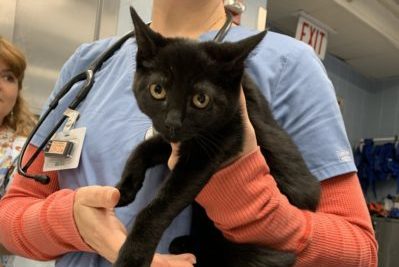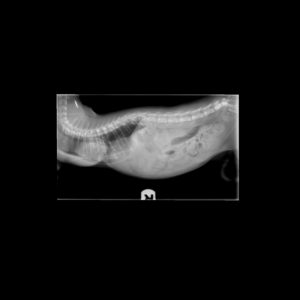Correcting Pet Birth Defects

Correcting Pet Birth Defects
If you visit the Animal Medical Center, you will notice most of the patients in the waiting room trend towards mature. We see older pets more often than youngsters because AMC’s 47 specialists in 17 specialty areas attract older pets with complex medical issues. An exception to that trend is puppies and kittens with birth defects. These disorders often require specialty care. For the AMC staff, these baby patients are an adorable break from the routine.
Inherited or Not?
Birth defects are simply abnormalities present at birth. They are “congenital” in medical terminology. At a cellular level, there is probably a genetic abnormality underlying all congenital disorders, but not all are inherited. For example, if a mother cat is vaccinated for panleukopenia while she is pregnant, the brain of the kitten in utero develops abnormally and the kittens are born off balance. This is a congenital disease that is not inherited. On the other hand, renal dysplasia, a birth defect of the kidneys, is common in the Shih Tzu breed and we believe it is inherited. Here is a list by breed of inherited diseases of the dog.
Two Squished Chests

Recently, AMC surgical specialists repaired two kittens, Midnight Bean and Lima Bean, who have pectus excavatum, a birth defect which results in an inwardly curved breastbone. The curve in the breastbone compresses their chests, puts their hearts in an abnormal position and reduces their lung capacity.
Fortunately, both kittens have been approved for subsidized care through the AMC to the Rescue program, and the prognosis is good for another eight lives apiece!
A Broken Heart
One of the most common types of birth defects in both human and veterinary pediatric patients is a heart malformation. A patent ductus arteriosus (PDA) is the common one seen in dogs. To read the story of Molly, a young dog whose PDA was repaired non-invasively by AMC cardiologists, click here.
Pain in the Neck
Another congenital problem commonly seen at AMC is excruciating neck pain due to a poorly formed junction between the first two bones in the neck. Read about Blueberry’s road to recovery using a novel surgical repair device orchestrated by AMC’s neurology specialists. Cases like Molly, the Bean kittens and Blueberry underscore the importance of frequent puppy and kitten visits to your veterinarian to promote early detection and correction of potentially life-threatening birth defects. AMC’s specialists are brilliant and can repair many birth defects in puppies and kittens, although some cannot be repaired but the pet can have a wonderful life. To see this for yourself, checkout Turbo Roo, the 2-legged Chihuahua.






























